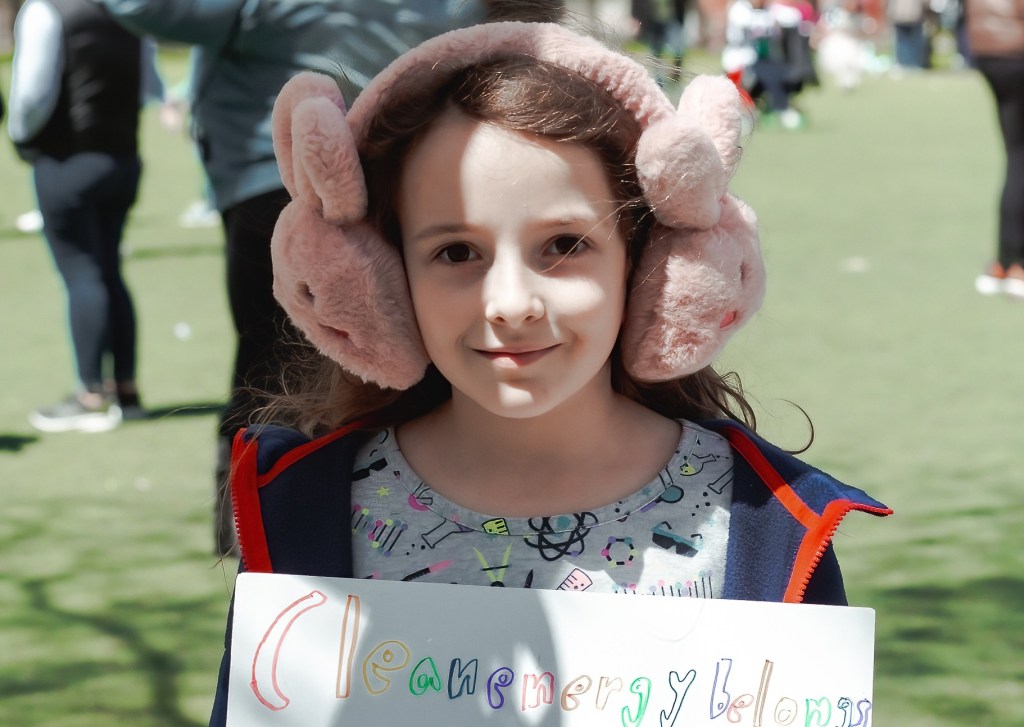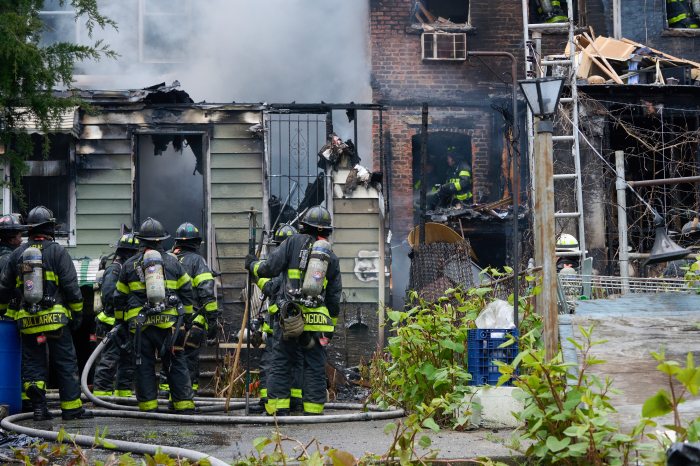When Anthony Pike returned home from his first tour of duty in Baghdad in 2004 nothing was waiting for him.
For years he had worked in community affairs and wrote articles for newspapers while in the Marine Corps. He expected to work in journalism back at home, but instead he couldn’t find work anywhere and ended up taking a job hanging flyers and posters.
Many young returning vets find themselves in a similar situation after serving their country, according to Pike.
“It’s frustrating,” he said, adding that he finally became a membership coordinator last year for the Iraq and Afghanistan Veterans of America [IAVA]. “There’s no reason why a combat medic who served in Afghanistan shouldn’t have a certification to be an EMT.”
 Pike, 30, of Astoria, said returning vets face the problem where employers don’t hire them, because they don’t have the academic documents to verify their abilities.
Pike, 30, of Astoria, said returning vets face the problem where employers don’t hire them, because they don’t have the academic documents to verify their abilities.
“It’s an epidemic,” he said. “It’s part of the reason why military unemployment is higher than civilian unemployment.”
Although he didn’t engage in battle, when Pike came home, he began suffering from nightmares and had problems adjusting, others issues vets have to deal with.
“I try to separate the two,” said Sean McCabe, a vet from Ozone Park. “Instead of waking up every day thinking someone’s trying to get you, coming back home is a relief.” McCabe, 28, said he was never diagnosed, but he faced Post Traumatic Stress Disorder [PTSD], in which sufferers have vivid memories of traumatic experiences. He credits his wife and his daughter with helping him overcome it.
“My wife has been the best,” McCabe said. “I could be in the darkest tunnel and she’ll walk out with me on the other side.”
He said many employers are also afraid to hire workers because they misunderstand PTSD, and the slim working availability makes him want to return to action.
“Not a day goes by where I think I wouldn’t mind being back there,” McCabe said. “I miss my guys and I was good at my job.”
To help vets get jobs and back to society, Assemblymember Phil Goldfeder has drafted two bills.
Bill 9969 would enable veterans to take civil service exams at discounted rates, giving them access to more jobs; Bill 9872 would allow for military service to be deemed eligible credit for a high school diploma.
“In these tough economic times we got to give every person the opportunity to succeed and get back to work, especially the vets who put their lives on the line,” Goldfeder said.
McCabe, who supports Goldfeder’s bills, said there is a “positive shift” and pointed to the work of the Wounded Warriors Project and the Veterans of Foreign Wars, organizations dedicated to helping veterans acclimate to civilian society.
“It’s really come a long way, there is still more to do,” McCabe said. “But they’re making their way.”


































